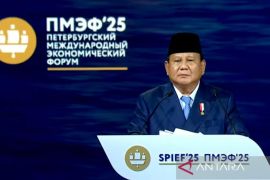Surabaya, E Java - Daniel M. Rosyid, an observer of transportation from the Sepuluh November Institute of Technology, Surabaya, has stated that Indonesia needs a breakthrough in mass transportation rather than in public car innovation to sustain the high mobility of its citizens. "What this country needs is not an electric-powered car, but a comfortable, consistent, and reliable public mass transport system," Rosyid said here on Wednesday. According to him, the government had allocated Rp100 trillion just for fuel subsidy to compensate for the large number of private cars in the country. "It means that the national budget is spent on energy subsidy for private cars, most of them being in Java. Therefore, people outside the island don¿t benefit as much from the fuel subsidy of the government," he said, adding that the transportation infrastructure also suffered from lack of improvement. Rosyid also felt that the international motor exhibition held in Jakarta at the end of September might contribute to the increase of private cars in the country. "The exhibition is contrary to the government's Car Free Day" program which was initiated by 150 cities around the globe in September," he said. In Surabaya, at least 100 new cars are sold per day, according to him. "Or there will be 3.000 new cars every month. In fact, a certain dealer has set a target of one million cars to be sold annually," he added. He suggested that Indonesia, as an archipelago country, needed to build a new paradigm in two key sectors, namely energy and inter-connectivity. "The energy sector would serve the public needs while the transportation sector is the key for national logistic distribution," Rosyid, who is also a professor of Marine Technology Faculty of ITS, said. He further said that Indonesia should set up new policies, which would help reduce the use of private cars. "Instead, the use of sailing technology for marine and fishery transport can be reviewed. We would also need more bus and train stations, as well as sea ports," he said.(*)
Berita Terkait

Prabowo urges ASEAN to send observers for Myanmar elections
27 Oktober 2025 11:36

Dewan Pers Terima Satu Laporan Media Mendiskreditkan Capres
27 September 2018 22:04

ASEAN Should Play Active Role in Solving Rohingya Crisis: Observer
5 September 2017 10:06

Terror Threats More Potential in 2017: Observer
10 Januari 2017 10:34

Palestinians Facing Proglem of Colonialism: Observer
4 Maret 2016 13:58

Economic Growth in 2015 Can Be Over 5 Persent: Observer
9 Mei 2015 21:28

PDIP does not Want to Lose Rismaharini: Observer
10 April 2015 22:55

